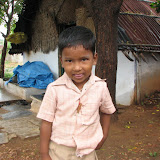Aide et Action Experience
Between the 8th and 16th of September I participated in Aide et Action's (http://www.aea-india.org/) EduAction Thematic workshop (http://www.aea-india.org/events.htm) held at the National Institute of Rural Development, Hyderabad.
My previous experience building boats for the tsunami affected fishermen in Thailand had me asking a lot of questions concerning the design and management of interventions for creating sustainable livelihoods (SL).
Key reasons I attended the workshop:
1. Need for structure - what are the pillars of SL interventions? How does one design and manage the intervention?
2. What works and what doesn't - learn from the experience of others in India and the region
3. Network - know more about the NGOs/INGOs operating in India and the nature of projects they are involved in
Here is a glimpse of what happened:
The workshop brings together 150 people from various NGOs, INGOs (international NGOs), Government and Research institutes. And stray cases of strangers to the field – like me!
The themes include:
· Quality Education through Community Participation
· Inclusive Education: Approaches and Strategies
· Promotion of Sustainable Livelihoods
· Management of HIV/AIDS: Approaches and Strategies
· PRA and Participatory Research
I was part of the 30 odd Promotion of Sustainable Livelihoods group.
We spent the first 3 days getting to know the participatory tools and models and simultaneously meeting key people from organizations running SL programs in various parts of india – BASIX (http://www.basixindia.com/), Marketing And Research Team - MART (http://www.martrural.com/), Rural Development Trust, etc. The programs cover everything from financing, market development, natural resources management, capability development and institution development.
I am interested in the area of micro finance and hence decided to study BASIX closely and chose to visit the villages where they have rolled out their products (savings/ credit/ insurance/ advisory/ agricultural business development) under the banner of Krishna Bhima Samruddhi bank. KBS has two mobile branches running out of vans. Field executives have mobile devices that help them bring the services to every doorstep in rural India.
The real awakening comes during the field visit over the next 3 days when you get to meet the field staff from the different organizations and most importantly their rural customers - the agri-dairy farmers, weavers, small business owners, among others.
After the back-breaking ride to six sites in the district you come back and put it all together and a rich discussion ensues – with people bringing in perspectives from different NGOs working in different parts of India. Models collapse, theories evaporate and you get a glimpse of reality – what works and what doesn’t.
My takeaways:
Apart from finding structure, seeing models at work and networking with the NGO community of India I have been greatly inspired by the quality of people I met and their enthusiasm to bring about positive change. People have come to the field of social development from all walks of life – engineers, defense personnel, civil servants, bankers, housewives, you name it! And they have contributed immensely to the field and to the communities they work for and in return accumulated a wealth of knowledge.
But they all unanimously agree that the single most effective agent to bring about change remains the government. NGOs by themselves do not have the resources and the reach to design and implement holistic programs as done by the Indian government. In the light of the complexities of issues being addressed you can commend the progress the government is making. Of course, much remains to be done. There is a huge pool of funds sloshing around. The need of the hour remains quality leadership and management talent, of course with a big heart to give back to the community.
Here is a link to the photo album:
If you want to know more and get access to some of the workshop material then feel free to drop me an email.

3 comments:
Good stuff machi. Great article. We better work on the Adikar foundation now. :)
commendable, what your doing. keep it up!
what next ....
Post a Comment